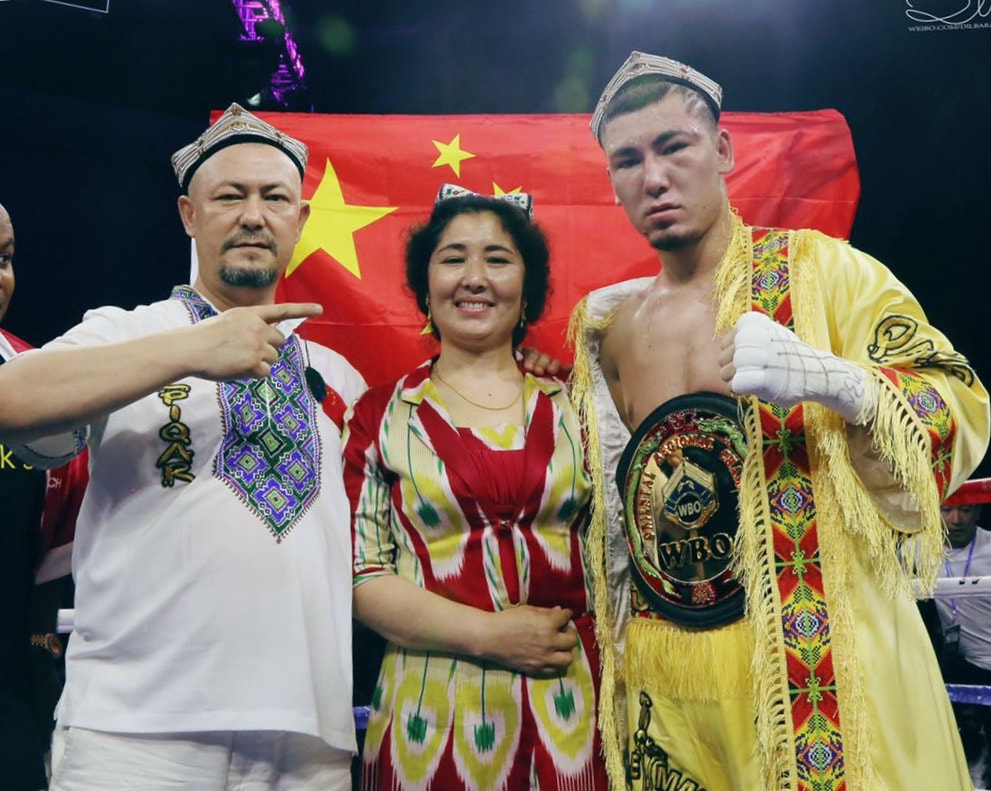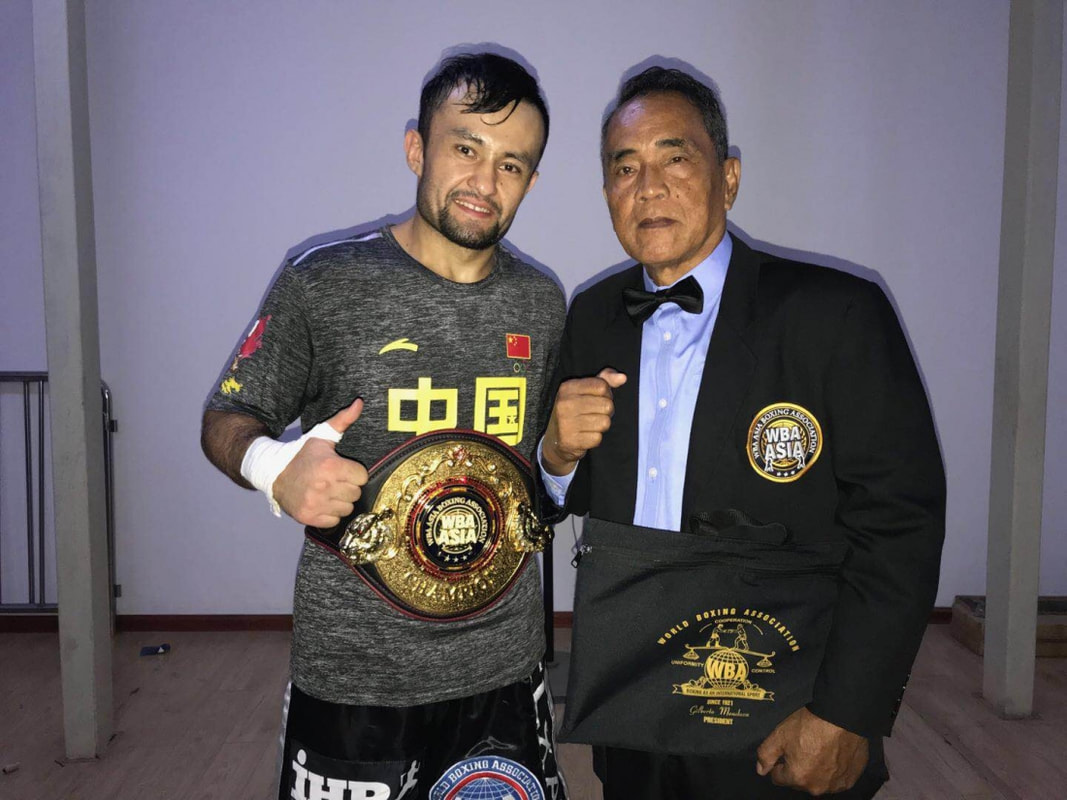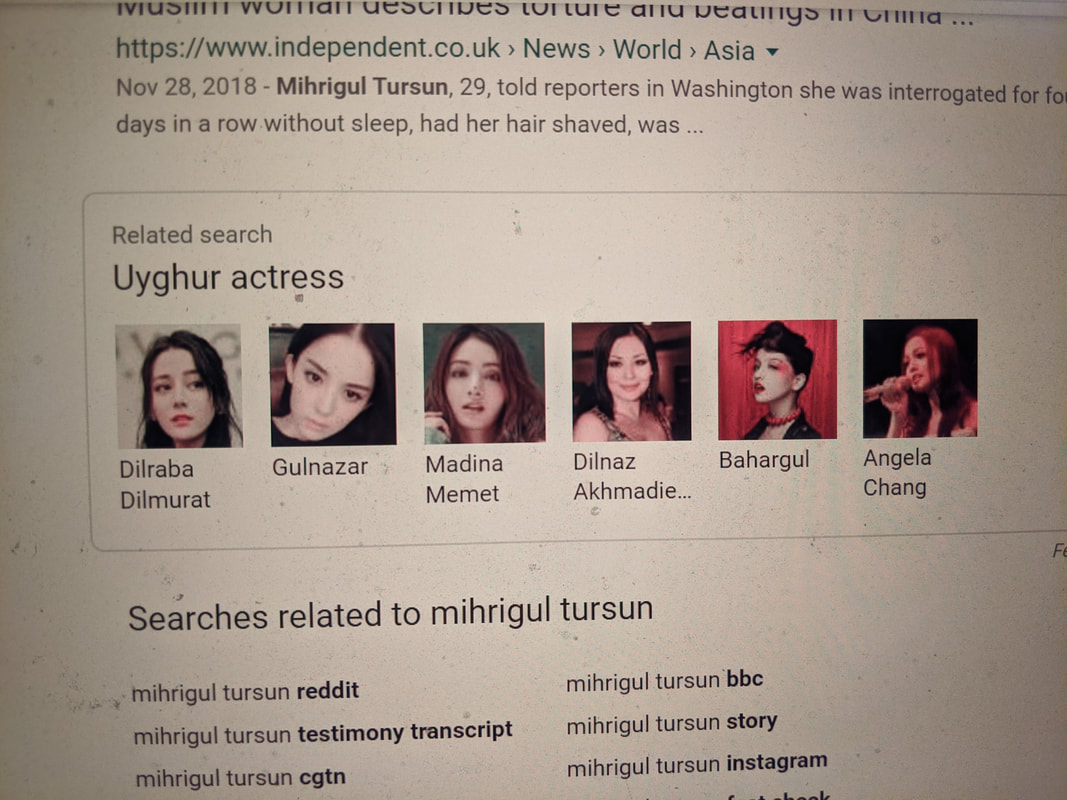|
I despised Eddie Hearn straight-up taking Saudi Arabia's blood money to host the Joshua-Ruiz card there -- but that's not news to anyone reading this. That Hearn is now talking about Saudi Arabia as a future site for multi-division champ recent signee Mikey Garcia's fights is further disheartening but unsurprising. An examination of his Capital One card ("What's in your wallet? Wait, is that a journalist's blood? Quick, stuff it back in your pocket before anyone sees!") would likely show the Saudi intake is what enabled Hearn to make such a large bid for the "Life Cereal Sniper" (Mikey is 32 now, but it's still not too late for him to adopt that nickname, which would endear him to fans again after his recent years of bizarre opponent selection). But none of what I am about to write concerns the above figures (double entendre intended) or even similar human rights advocacy -- despite what appear to be similar circumstances. Top Rank, the American promotional outfit with the most robust network of international alliances -- and talent scouts, too, though those two categories overlap -- holding a fight card in China on the eve of the Super Bowl -- Feb. 1, 2020. The idea of the card is twofold -- one, it'll celebrate Chinese New Year, and therefore further advance Top Rank's recognition in Xi Jinping's vast fiefdom. Two, it'll make Top Rank tons of money in the immediate present. I don't have figures -- as I keep telling readers, I never set out to be contract-revelation guy -- if there's any Schefter, Passan or Woj in this, it's merely because boxing's ever-shifting alliances -- many unexpected, some highly disreputable -- make the sport utterly incomprehensible without these analyses. But even without numbers, I can explain the lucre. There's a Chinese family-owned company called Mission Hills that claims to run the largest golf complex in the world (it has 12 courses was built in 1992 atop a some sort of garbage-dump-wasteland. The Chu brothers, Ken and Ten, have run the company since their father passed away 8 years ago. And their initiative, beyond buying and building more golf resorts, has to been to expand into other sports. They've done this with varying success (they were instrumental in expanding the NBA's presence in China, but I dunno which side of the ledger that belongs on, now that official Chinese policy is to spurn the Association because a single general manager voiced support for the democracy protesters of Hong Kong). Two years ago, the Chus struck a deal with FC Barcelona to open up a soccer academy on one of its properties (in addition to the two IMG-like academies already present at Mission Hills, which serve as training sites for China's soccer and tennis national teams). Ronaldinho visited Mission Hills as part of the signing -- because that's a key component to all the Chu deals: They want the world to see incandescent celebrities on their premises at all time in order to attract business. The Warriors championship team has been paid to play there (again, the basketball thing was going well for a while) -- and Nicole Kidman and Morgan Freeman have received similar appearance fees without even having to tee off. They just kinda stood around. The biggest Chu coup of the last year? In September, they came to a preliminary agreement with Floyd Mayweather for the domestic abuser to box at the Mission Hills resort on the island of Hainan -- known as Haikou. On Sept. 17, Mayweather was supposed to fly to Hainan, tour the island, eat at a lavish reception -- then wake up the next day and participate in a ceremonial signing with Ten Chu at 10 am, to which the press was invited. He'd then hold a boxing tutorial for kids before returning to fight the meaningless exhibition in 2020 against a Chinese fighter to be named later (just one more publicity stunt from him -- this time, instead of facing a tiny, young kickboxer -- Tenshin -- or a rowdy Irish MMA star -- McGregor -- neither of whom had ever boxed a single professional round in their lives -- he'd face an anonymous Chinese boxer with rounds under his belts but likely minimal talent). That plan was cancelled when Floyd literally failed to show up, despite the Chus indicating they'd reached a preliminary deal. So now you had a wealthy, golf-resort-proprietor that badly wanted to host fights. Enter Top Rank, which was introduced to the Chu brothers via their long-time Chinese co-promoters, a company named SECA. I don't have figures, as I mentioned -- but that's the big money. And Top Rank planned to use it smartly, putting on a main event in Hainan featuring their unified champion light-heavyweight Artur Beterbiev against the 21st-ranked boxer in that division, who'd be overmatched but maybe could stay upright for a few rounds and who, no matter the action, would still be Chinese -- the key required trait. If all this sounds a basic set-up to a rant, like I'm about to mention China's human rights record, you are very much mistaken and 100 percent right. Beterbiev wouldn't agree to appear in China -- as a Muslim, he takes great offense to China's mistreatment of coreligionist Uighurs (an ethnic group related to the Turks) in the country's west, one million of whom are said to be detained in concentration camps (it didn't help China's lying about this when documents about official Uighur brainwashing were recently leaked). So Beterbiev was replaced as the card's headliner with undefeated 140-lb. champ Jose Carlos Ramirez, who usually fights in Fresno, California, where he fills up a 14,000-seat arena. It was a strange substitution, but Top Rank was scrambling, understandably -- this was too much to forgo. And again, I've got no issue with it. The Chu brothers were screwed when China shunned the NBA -- they'd put in so much work for the league on the mainland, including opening up a museum exhibit about it. Moreover, the company is registered in Hong Kong (though its business is on the mainland) and CEO Ken Chu, while not outright supporting the protesters there, actually wrote an op-ed supporting them, if only very mildly (you have to read between the lines -- he talks about how the authorities need to bridge a generational divide with studnts -- which is about the most he could say without all his companies resourced being seized by the government). So this story isn't quite like Eddie Hearn's direct acceptance of Saudi government cash -- the Chu brothers --both graduates of Canadian universities --, don't represent the state -- to the degree that any private Chinese enterprise can even be called that (#Wanda #Anbang #MaybeHuawei). To the degree a corporation there can operate without Big Brother's approval (their first golf course, built in 1992, followed the government's opening of the south to commercial development -- how the Chus got their parcel remains an untold story). Back to the badly abused, tortured and detained Uighurs: the Chu brothers can and probably should do something to remedy that grave injustice -- and maybe secretly, they already are. Philosopher John Stuart Mill in 1867: “Bad men need nothing more to compass their ends, than that good men should look on and do nothing" (JFK once wrongly assigned a variation on that quote to another philosopher, Edmund Burke, which is why it sounds familiar but off). And that's what has made this fight deal so odd: There is something being done in boxing with the Uighurs. An examination of the Top Rank undercard -- mostly assembled by Chinese promoter-partner SECA -- reveals that two Uighurs from the capital city of their nominally semi-autonomous region -- Urumqi, Xinjiang -- are featured prominently in bouts -- one of whom is slated to fight on the ESPN broadcast along with the main event. First meet 12-2-1 super-middleweight Zulipikaer Maimaitali, whose bout won't be televised, not for nefarious reasons but for lack of time, which might be just as well for the ESPN announcers -- if Mark Kriegel were to explain the signifance of Maimaitali's appearance and dress, he might be subject to a most harsh interrogation (his passport having already been snatched when he was removed from the set mid-show). Also, note the Chinese flag just below -- we'll return to it. Now meet Ainiwaer Yilixiati, a 17-1 middleweight who will be shown on ESPN -- and note the t-shirt he's wearing, which are the Chinese hanzi (characters) for the word "China." The question the presence of these fighters on the undercard posed was pretty simple: Why would China work so hard to erase all aspects of Uighur culture and yet allow athletes who are a product of that culture to exhibit their strength and heritage on a big stage? And this inquiry wasn't spurred by a single sample case: I began looking at other Chinse fight cards, and sure enough, ethnic minority Muslims (besides Uighurs, people of Kazakh heritage live in the western province) were the stars of practically every show. This prompted me to question a range of figures, including a trainer in China -- Abraham Darwish, who has worked with champion Xu Can, a member of the ethnic Han majority but also Bo Shan Bo, an ethnic Kazakh who grew up in China -- and a boxing manager -- Ye Tian, whose clients include Uighurs and Hans both (he reps the aforementioned Yilixiati, who'll soon be on ESPN). Darwish: "Of course, I know there are problems but every country has problems with [an] ethnic minority...The Muslim fighters are better and stronger...because athletics for them its the only way out." If they're getting out, I wondered, where exactly are they going? Tian, the manager: "I have led my boxers to fight in Australia, India, Russia, the Philippines, Kazakhstan and other countries, as long as they have a certificate from the Chinese boxing association. In addition, the Chinese government will not deliberately show off the achievements of Uighur boxers, and of course it will not suppress them. In a word, everything is normal and reasonable." I'm sincerely grateful for both Darwish and Tian's generous replies to me, but they're both Chinese fight insiders, for better or worse. I'm not saying they misled me in any way -- more that they may not be able to see what those outside clearly can. And that pattern looks like this: In the run-up to the Beijing Olympics, the Chinese embraced Uighur boxers because Darwish is right -- they're damn good (keep in mind that they're really from the same area as the Eastern European fighters currently dominating the sport). China wanted to win medals. Incidentally, one of the Uighurs on the Top Rank card, Yilixiati, has fought in the crazy Water Cube Beijing erected for swimming at the '08 Olympics -- that's what's become of that structure. It's a fight venue some nights. Even so, it's not like boxers' communities in Xinjiang saw any benefit from that tolerance. In July of '08, after the government killed five Uighurs it branded separatist terrorists, a BBC reporter visited the farm on which a Uighur Olympic boxer grew up and began asking questions. From his report: "Analysts believe that militant Uighur separatism only has the support of a small minority. But it is hard to establish definite facts about this - whenever I broached the subject replies were quickly and defensively 'on message'. For example, one man said 'The Chinese help us. They are more educated than us, they are helping us develop.'" The BBC reporter then went to the capital of the region (where the Top Rank card fighters live), Urumqi, and observed the boxer "training in front of a banner that read "Above All Else, the Motherland." Still he reported seeing no armed military men anywhere, no noticeable security apparatus or police presence. In the years, after the Olympics (much as Russia invaded Crimea after its own Sochi Winter Games), China stopped holding back (and here's it worth mentioning that Xinjiang sits atop a ton of oil, although if this is a war for resources, I'm not sure why concentration camp brainwashing is necessary: By December of 2014 -- five years ago -- China was detaining Uighurs left and right, its justification the ostensible violence of a separatist movement. And here's where you first see publicly the way the Chinese went from embracing the boxing Uighurs and Kazakhs provided the country to rejecting it as just another element of an unwanted culture. On Dec. 12 that year, a Friday (the Islamic sabbath), the provincial police produced released a list of 75 "specific signs" that might signal a person was a radical, a terrorist. Women covering their face in veils? Check. Not drinking alcohol? Check. Multiple beds in the single house? Could be a sign of a terrorist cell, so...check. Don't get it wrong: There actually were awful terror attacks, as Darwish, the boxing trainer, detailed in his response to me. In March of 2014, nine months before the 75-Signs-You're-a-Terrorist list was created, a violent group stabbed a massive number of people with knives at the train station in Kunming. Darwish told me he was actually in Kunming at the time and remains "shocked" about it. Twenty-nine people were killed and 143 more were injured. The problem, so to speak, is that it was the Chinese authorities who labeled the rampaging murderers Uighurs. And while it very well may have been, one has only the word of a concentration-camp-running cabinet to trust. And also complicating the attribution of an absolutely heinous act: as evidenced by the list of 75 ways to look terrorist-y issued not long after, the Chinese clearly wanted to paint a far broader swath of Uighur society as extremist and violent than was ever the case. "For the most part Muslims in China are a peaceful loving people who don't trouble anyone and are not troubled by anyone," Darwish wrote in his email. Which leads us to number 33 of 75: If someone buys boxing gloves, he or she might be a terrorist. Boom: Suddenly, a culture of fighting once celebrated in Beijing was a public threat. Boxers who looked a certain way were now more a menace than an asset. I'll be the first to admit I don't understand what's happened in the five years since -- what led us to a situation in which two Uighurs fight on a Top Rank card while a million of their relatives are imprisoned (the US State Department says it might be 2 million). A month ago, a 29-year-old woman named Mihrigul Tursun spoke to reporters at the Washington Press Club in D.C. before meeting with lawmakers two days later. She had been detained three times since 2018, and the description of what she endured is beyond disturbing. Many publications led with the words "crime against humanity," but I appreciate the brutal quote the Telegraph used as a headline: "I begged them to kill me." God bless Japanese artists and otaku -- one illustrator produced a manga to convey Tursun's story to the widest possible audience. That comic has since been translated into a number of languages and viewed millions of times online. Now, you tell me -- how in the hell can this treatment go down simultaneous to the high-heels sashaying of ring card girls between rounds of a Uighur-dominated fight? How does that make sense? It's so jumbled and odd I've literally asked a woman at Human Rights Watch whose expertise is Uighurs for help in understanding it (if and when an explanation comes, I'll insert it here). Now recall what I asked you to note -- that big Chinese flag spread out behind Zulipkaer Maimaitiali after he won. The t-shirt reading "China" in Chinese character on middleweight Ainiwaer Yilixiati (the Uighur language is actually Turkic and most certainly does not use hanzi characters). Are these symbols they have to embrace to get fights in China? Is the deal unspoken but obvious -- we'll give you a big platform so long as you celebrate Motherland while on it? Before Mihrigul Tursun was released from a concentration camp for the third and hopefully last time -- she has since fled to the US, whose immigration authorities I can finally be proud of the first time in three years -- Chinese camp officials made her read this statement on camera: "I am a citizen of China and I love China. I will never do anything to harm China. China has raised me. The police never interrogated me or tortured me, or even detained me.” Is that what the boxers' Chinese flags and shirts are -- a sartorial equivalent of that false-praise-propaganda? Are they Theresienstadt fighters -- put on display to show the world how innocent this whole detention is -- how vibrant the community is when concentrated in one spot? A year ago, the Chinese governor of Xinjiang said the camps "enhance" residents' lives, makes their existence more "colorful." Look again. Of course, China could prove that its facilities aren't torture camps but vocational learning centers (one common official line), if it allowed journalists or NGOs or UN observers in -- if it let in anyone at all. Obviously, that won't happen. Less obvious but more actionable: Google, in a classic act of Big Tech negligence, is abetting the Chinese. If you search the name of the tortured detainee I earlier mentioned -- "Mihrigul Tursun" -- the very first video entry to appear is a Chinese state-produced piece on how she's a liar. The page also suggests a related search for "Uyghur actress." It's abhorrent -- and an excellent example of the way state actors, using a tool as simple as search engine optimization, can delegitimize important voices and broadcast instead slanderous misinformation. The question of whether the elevation of Uighur boxers contributes to the country's larger abuses is a tough one. None of the fighters could speak out against these crimes without being silenced and discredited almost immediately. China controls its Internet -- the messages spread about the boxers would not be their own but their captors'.
Also, if these guys fight as a natural extension of their culture, isn't further repression to ask them to desist (unless their abstinence will really effect change)? As for Top Rank, ostensibly, it had no idea it was wading into this morass. Beterbiev's refusal to be the main event was a surprise and the company wasn't even responsible for stocking the undercard -- that's almost entirely the handiwork of Chinese promoter-partner SECA. What Top Rank was focused on entirely here: taking huge wads of cash off the golf course kings of Asia. As I said, this isn't as simple as Eddie Hearn and Anthony Joshua accepting blood money from the Saudi government to sport-wash its sins. The money here comes from putting greens, not western prisons. I'm not trying to exculpate any of the above boxing folk-- ignorance and blind venality are no excuses for misbehavior. Rather, I'm reporting misbehavior and wondering how boxing has managed to keep its distance (we're usually at the center of wrongdoing). And whether that's a good thing. I'll let you know when/if Human Rights Watch gets back to me (I feel like prizefighting isn't an issue they'll prioritize during this crisis). In the meantime, tune into ESPN on Feb. 1 to see those lucky enough to remain free. |
|




